Episodes

Tuesday Sep 21, 2021
Knowing God Through Reason and Revelation with Prof. Kyle Washut
Tuesday Sep 21, 2021
Tuesday Sep 21, 2021
In the first chapter of his letter to the Christians in Rome, St. Paul wrote, “For the wrath of God is revealed from heaven against all ungodliness and wickedness of men who by their wickedness suppress the truth. For what can be known about God is plain to them, because God has shown it to them. Ever since the creation of the world his invisible nature, namely, his eternal power and deity, has been clearly perceived in the things that have been made. So they are without excuse” (Romans 1:18-20).
History bears out the truth of St. Paul’s statement. You don’t need a Bible to know that God exists and that he is eternal, powerful, intelligent, just, and creative. We all live on the same planet, see the same nature, and are able to come to the same obvious conclusions—even if some people refuse.
Nonetheless, Christianity is not a nature religion. It is a revealed religion. God has spoken through the words of the inspired writers of Scripture and through the Church.
So where are the boundaries between what any human can understand about God through reason and what requires revelation?
Prof. Kyle Washut has been discussing just that with our Wyoming Catholic College sophomores as they read St. Thomas Aquinas’ Compendium Theologiae together.
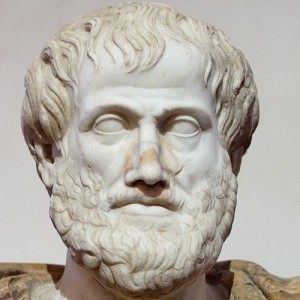
Tuesday Sep 14, 2021
Aristotle‘s ”Categories” with Dr. Michael Bolin
Tuesday Sep 14, 2021
Tuesday Sep 14, 2021
Aristotle’s Categories,” writes Davidson College Professor of Philosophy, David Studtmann, “is a singularly important work of philosophy. It not only presents the backbone of Aristotle’s own philosophical theorizing but has exerted an unparalleled influence on the systems of many of the greatest philosophers in the western tradition.”
And freshman philosophy at Wyoming Catholic College begins by being thrown into the deep end as students jump into Aristotle’s Categories. In that work, Aristotle outlines the framework needed to read and understand the works students will encounter later in their intellectual journey: The Physics, The Metaphysics, and The Nicomachean Ethics.
Their guide to The Categories this semester is our guest this week, Dr. Michael Bolin, whose specialties are the works of St. Thomas Aquinas and Aristotle.
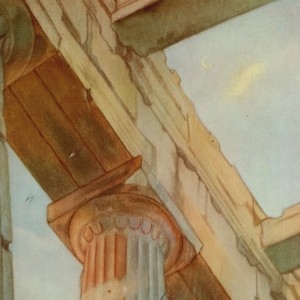
Tuesday Sep 07, 2021
In Conversation with Ancient Greek and Latin with Prof. Stephen Hill
Tuesday Sep 07, 2021
Tuesday Sep 07, 2021
In the past few weeks, this podcast has featured introductions to two of three new faculty at Wyoming Catholic College: Dr. Paul Giesting and Dr. Daniel Shields. Today's podcast introduces the third, Prof. Stephen Hill.
Prof. Hill joins Wyoming Catholic College to teach humanities and the Latin program which, of course, is taught as spoken Latin. Prof. Hill also has proficiency in speaking classical Greek.
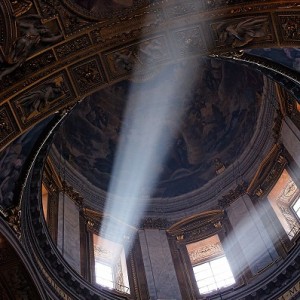
Tuesday Aug 31, 2021
Snow in August and the Liberal Arts by Prof. Kyle Washut
Tuesday Aug 31, 2021
Tuesday Aug 31, 2021
“The object of a new year,” quipped G. K. Chesterton, “is not that we should have a new year, but that we should have a new soul.”
While Mr. Chesterton probably had January 1st in mind, anyone in education—including students and parents—knows that the new year begins when school begins and our Wyoming Catholic College students are now in their second week of classes.
A week ago Sunday, as our freshmen matriculated at Wyoming Catholic College, thus beginning a new year, President Glenn Arbery and Dean Kyle Washut had some words of wisdom and encouragement. Last week’s podcast featured Dr. Arbery’s thoughts. This week, we’ll turn to Dean Washut as he discusses a distinctly Wyoming phenomenon all students has experience on their 21-day backpacking expedition: snow in August.
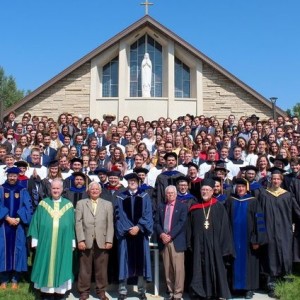
Tuesday Aug 24, 2021
From the Mountains to the Classroom by Dr. Glenn Arbery
Tuesday Aug 24, 2021
Tuesday Aug 24, 2021
Last Saturday, we welcomed our 68 freshmen—our largest freshman class ever—back from their 21-day backpacking expedition. On Sunday, with students in their Sunday best and faculty garbed in their academic regalia, Msgr. Daniel Seiker, our Latin chaplain celebrated convocation Mass. After a brief break for refreshments, the college community gathered again for the annual matriculation ceremony.
At matriculation, freshmen are formally welcomed into our community of learning and each freshman comes forward to sign his or her name in the big leather-bound book that every freshman has signed since the school’s beginning.
As you might imagine, our college president, Dr. Glenn Arbery had some words of wisdom and encouragement for our freshmen. Here are Dr. Arbery’s remarks.
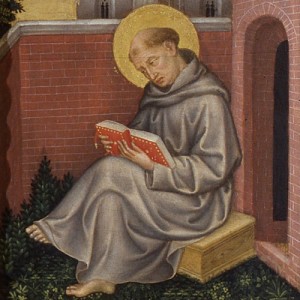
Tuesday Aug 17, 2021
A Philosopher Reads St. Thomas Aquinas with Dr. Daniel Shields
Tuesday Aug 17, 2021
Tuesday Aug 17, 2021
“Because philosophy arises from awe,” wrote St. Thomas Aquinas, “a philosopher is bound in his way to be a lover of myths and poetic fables. Poets and philosophers are alike in being big with wonder.”
Last week our guest on The After-Dinner Scholar was Dr. Paul Giesting, newly-arrived professor of mathematics and science. Today our guest is philosopher, Dr. Daniel Shields who is also new to the college faculty.
Dr. Shields did his undergraduate work at Thomas Aquinas College and received his PhD from the Catholic University of America. His main interest is in philosophy of nature and science, ethics, moral psychology, and medieval philosophy.
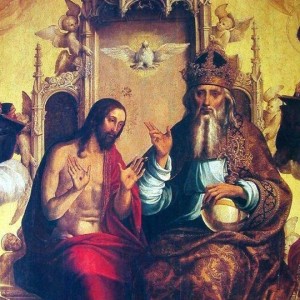
Tuesday Aug 10, 2021
Understanding the Trinity with Dr. Jeremy Holmes
Tuesday Aug 10, 2021
Tuesday Aug 10, 2021
Jesuit theologian Karl Rahner wrote, “Christians are, in their practical life, almost mere ‘monotheists.’ We would never know they believed in the Trinity, because nothing about their lives reflects trinitarian engagement.”
While Christians are monotheists—that is we believe in only one God—we are not what Rahner called mere monotheists. We believe there is one God who exists eternally as a Trinity of Persons: Father, Son, and Holy Spirit. “God in three Persons, blessed Trinity,” as the hymnist put it.
On May 4, our podcast featured this week's guest, Dr. Jeremy Holmes, talking about his new book Cur Deus Verba: Why the WORD Became Words. The book is a theology of Scripture, but it begins with a chapter entitled “Why God Created: The Trinity.”
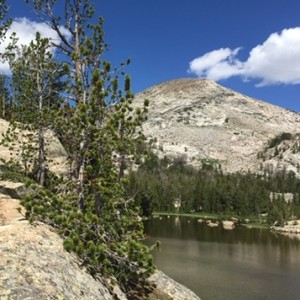
Tuesday Aug 03, 2021
Wyoming is Our Classroom: Field Science with Dr. Paul Giesting
Tuesday Aug 03, 2021
Tuesday Aug 03, 2021
As the new Wyoming Catholic college freshmen—all 68 of them—left for their 21-day backpacking expedition, we reminded them that in freshman theology they’ll be studying God’s second book, The Bible. In the wilderness, they should read their Bibles, but they’re to concentrate on God’s first book, the created world. Mountains, rivers, rocks, trees, flowers, soil, birds, and animals.
That being said, however, in addition to studying the Bible freshman year, they’ll also be studying mountains, rivers, rocks, trees, flowers, soil, birds, and animals in a more systematic way in their freshman course on field science.
This week's guest, Dr. Paul Giesting has just joined the Wyoming Catholic College faculty to teach, among other things, field science.

Tuesday Jul 27, 2021
Shakespeare's Rome: Politics and Eros by Dr. Tiffany Schubert
Tuesday Jul 27, 2021
Tuesday Jul 27, 2021
As Aeneus becomes increasingly comfortable building Carthage with Queen Dido, the god Mercury appears to him. “You, so now you lay foundation stones for the soaring walls of Carthage! Building her gorgeous city, doting on your wife. Blind to your own realm, oblivious to your fate!” Aeneus is supposed to be headed for Italy to build Rome. Carthago delenda est--Carthage must be destroyed.
The final presentation at The Wyoming School of Catholic Thought this past June focused on the story of Aeneas and Dido from Virgil’s Aeneid, the great founding myth of Rome. The parallel with Antony and Cleopatra is obvious and was probably intended.
But there’s a most important difference: where Antony stayed in Egypt forsaking Rome, Aeneas fled Carthage for the sake of Rome.
At the Wyoming School of Catholic Thought, Dr. Tiffany Schubert offered this presentation about the two couples and the relationship of politics and eros.
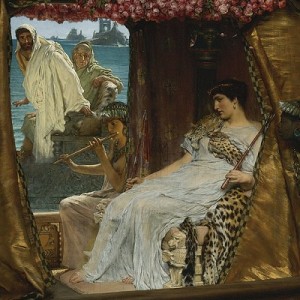
Tuesday Jul 20, 2021
Shakespeare's "Antony and Cleopatra" by Dr. Adam Cooper
Tuesday Jul 20, 2021
Tuesday Jul 20, 2021
The story of King David’s tryst with Bathsheba begins with these ominous words, “In the spring of the year, the time when kings go forth to battle, David sent Joab, and his servants with him, and all Israel…. But David remained at Jerusalem.” (2 Samuel 11:1).
Just as David remained in Jerusalem “when kings go forth to battle,” the great Roman general, Mark Antony, remained in Egypt, captivated by Queen Cleopatra. “Let Rome in Tiber melt, and the wide arch/Of the ranged empire fall! Here is my space,” he tells her.
The result as Shakespeare explains in the title of the play is “The Tragedy of Antony and Cleopatra.”
At the Wyoming School of Catholic Thought in June, Wyoming Catholic College professor Dr. Adam Cooper introduced Shakespeare’s play and its themes.

